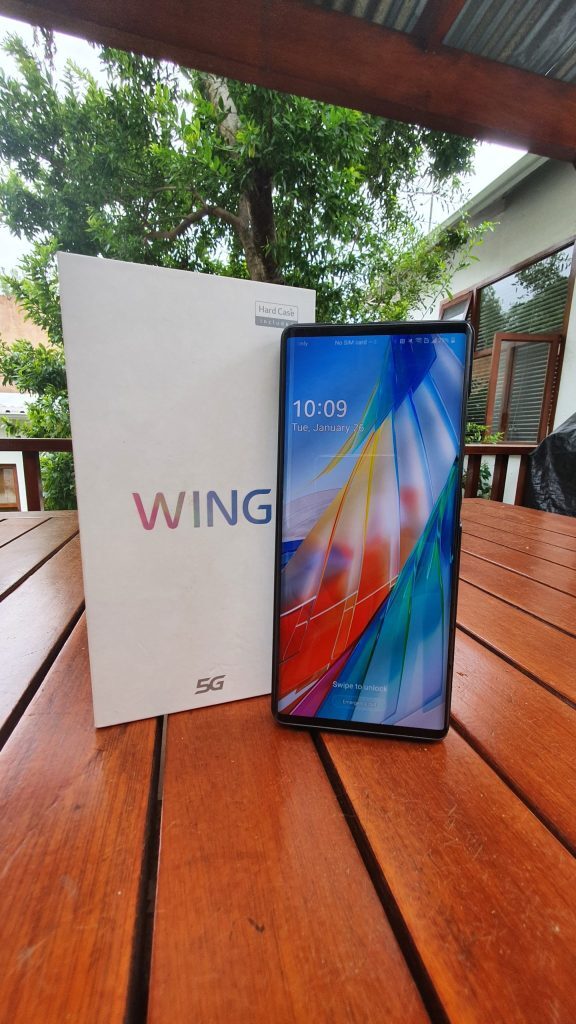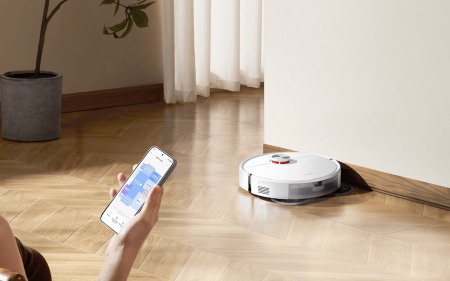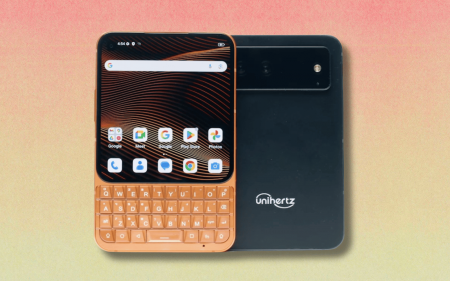The LG Wing is a good phone. It offers a unique feature at an affordable price, but unfortunately, its uses are just too limited right now. It’s more of a convenience and a unique gimmick than an infallible argument as to why you should choose this phone over something in a similar price range with better specs but no wings.
That said, if you’re looking for a cool phone with dual-display features that isn’t going to break the bank, the LG Wing might be for you.
-
Design
-
Performance
-
Displays
In a world over-saturated with simple, samey, rectangular smartphones (elegant and perfectly functional as they are) LG has made a bold statement with the LG Wing. In one fluid motion, courtesy of some very fancy mechanics, the phone transforms from a glass slab to a “T”, revealing a secondary square screen behind the main one. Whilst this feature is certainly unique, even among other phones touting “dual display” capabilities, is it a game changer? Or is it just a charming gimmick?
Design and Specs
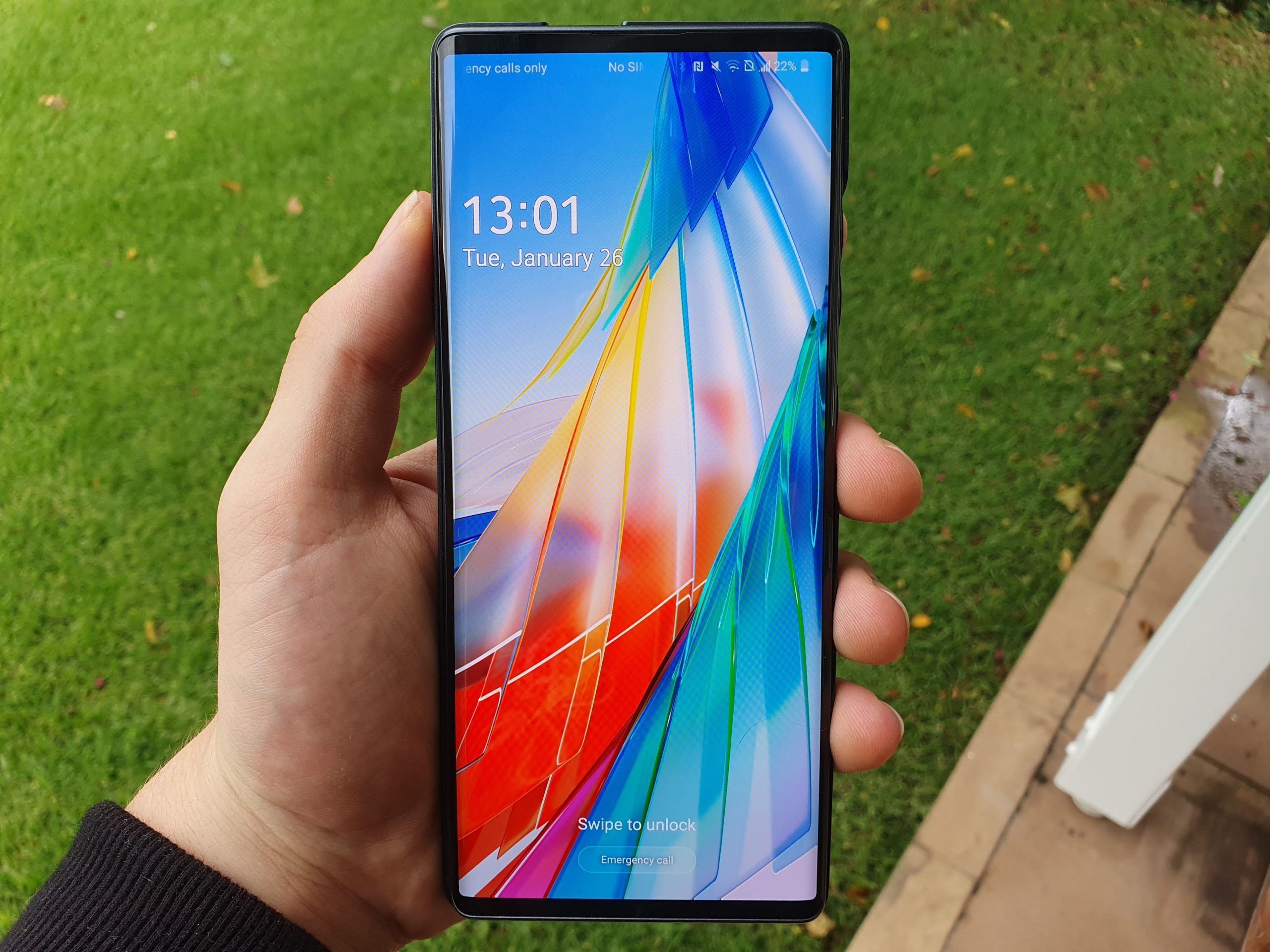
Even in its standard rectangular form, The Wing is a pretty thing. The top screen has sleek, sloping sides that complement the metal frame. The glass back panel is elegant, but a liability in instances of clumsiness. When swiveled open, the back of the main display is decorated by a sort of matte, which is a nice touch on LG’s part considering one could spend the phone’s entire life never looking at this part of it. In its swiveled mode, the phone trades in the standard smartphone shape for a dynamic “T”, spreading its wings. It’s impressive that LG added the second display without dramatically thickening the phone, which isn’t much denser than the larger Samsung and iPhone models. It’s a snug fit in my jean pocket, but definitely not an impossible one. It is, however, noticeably heavier than most smartphones.Whether this design is gorgeous or bizarre is entirely up to opinion. At the very least it’s intriguing.
There’s only one speaker aside from the one used for phone calls, and it’s fine. Nothing to write home about, but it does the job. You won’t be able to appreciate a bumping bass line without the assistance of headphones, which, unless they’re Bluetooth capable, will need to fit into the USB-C port, as the phone lacks a 3.5mm jack.
Personally, in day-to-day use I found the T-shape rather cumbersome to hold, but this is mitigated by rotating it. You can hold the phone by the main display to function as normal, and have the second, smaller screen function as an auxiliary one. I did worry about what kind of damage I could do to the phone by simply dropping it in this state. Unfortunately, most covers offer little protection in order to preserve the swivel function. It’s not a great idea to drop any smartphone, but the Wing is worth particular care and consideration in that regard.
Inside of the phone you’ll find Qualcomm’s Snapdragon 765G, offering 5G which is great if your network offers it. It’s not the most powerful processor, but it’s still very good and helps keep the price below the stratosphere. It’s got 8GB of RAM and up to 256GB of storage, and a reliable 4000mHz battery which I found tough to run down with normal daily usage. In terms of biometrics there’s no face unlock, but there is a fingerprint scanner. Unfortunately, it’s only on the main screen, so you can’t use it to unlock the phone in its swiveled state without some hand gymnastics.
Displays
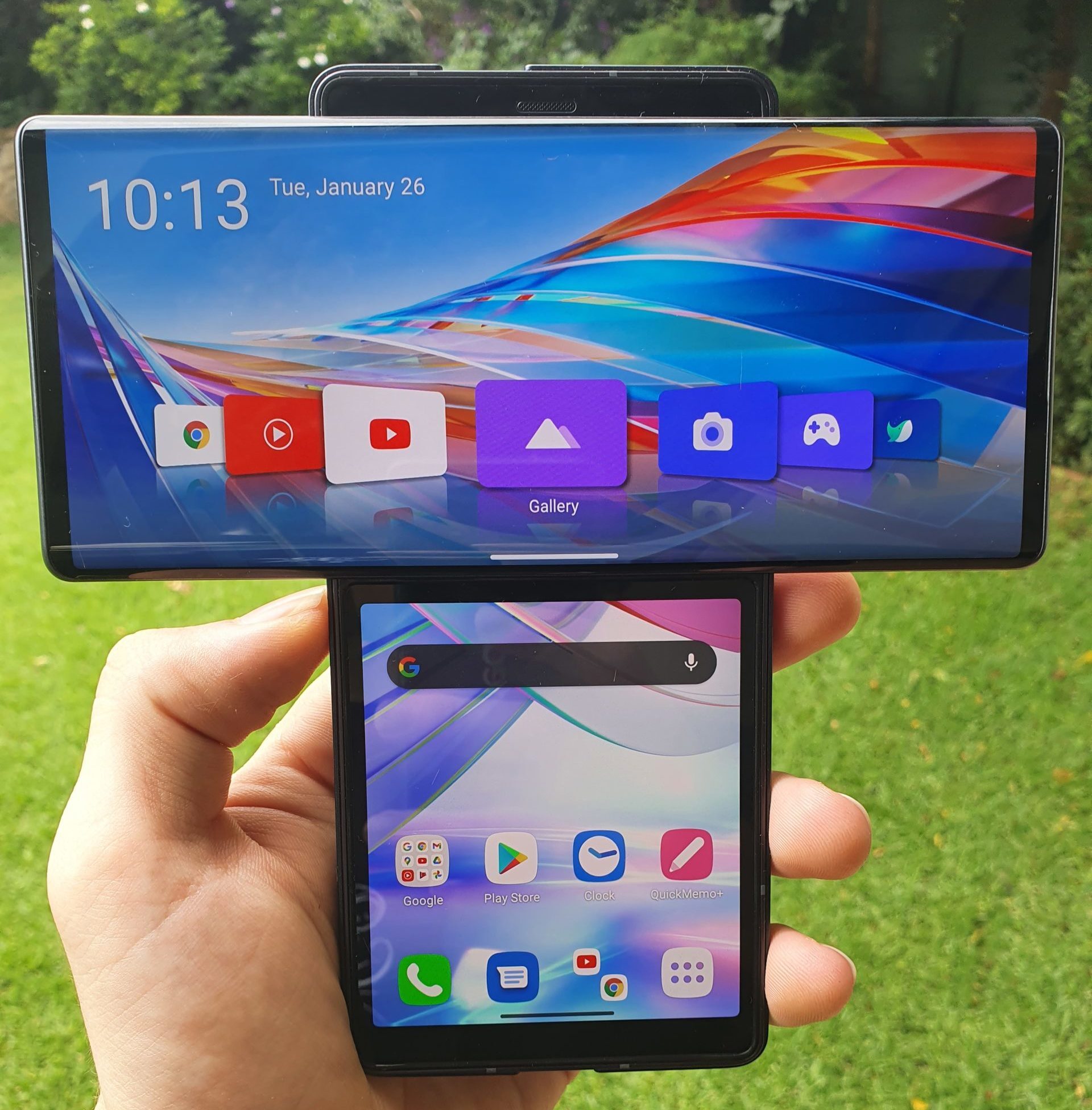
The LG Wing sports an impressive OLED FHD+ display. Whilst this isn’t as eye-wateringly vibrant as some WQHD+ supporting phones, colours are still vivid and dynamic, animations are smooth, and finer details are easily perceptible. It’s unfortunate that the phone lacks the ability to run at 120Hz like others in the same price range, but 60Hz is still comfortably smooth. The framerate is stable streaming YouTube and Netflix, even when multitasking. I did, however, experience some stuttering on demanding games like Call of Duty: Mobile and Genshin Impact on their highest settings. Nothing debilitating but not something I expected for what the Wing costs.
Camera
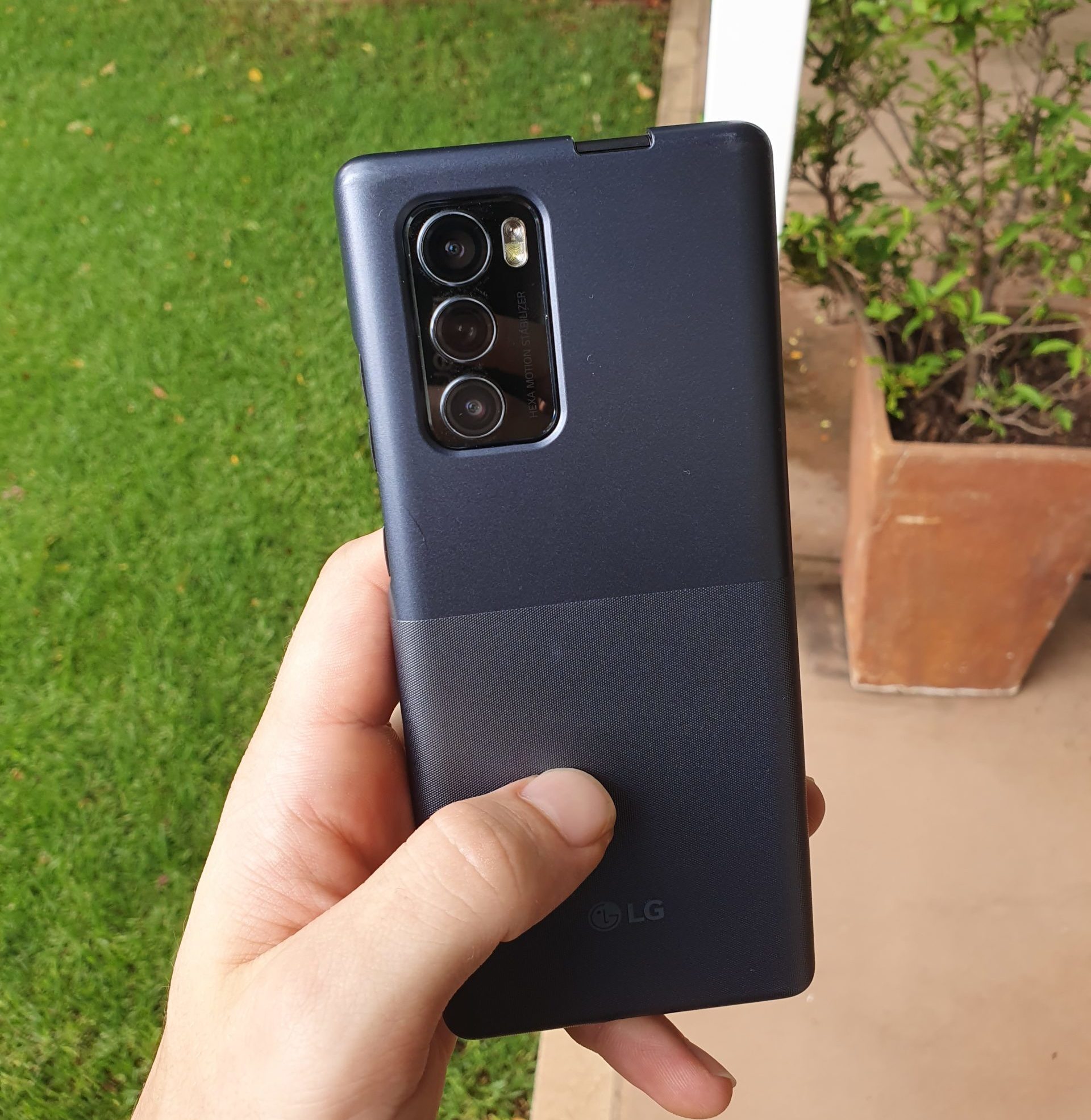
The LG Wing sports a 64-megapixel main camera on the back which takes crisp, detailed photos. Colours pop and lights and darks contrast nicely in good lighting, and night mode provides great shots in low light. However, I found low light photos prone to blurring if I wasn’t holding the phone particularly steady. The LG Wing has a neat little pop-up 32-megapixel selfie cam, and also a 13-megapixel wide-angle camera used for landscape shots in swivel mode. The swivel mode includes an interesting “gimble” feature. It works like a normal, external gimble, providing impressively stable shots. The secondary screen functions as the handle, with a joystick one can shift the camera’s angle with. It also includes three different modes that utilize digital stabilization to provide consistently stable video even with considerable movement. At the end of the day though it’s just a software gimmick. It’s not a real gimble, and you shouldn’t buy the Wing just for this feature.
Doubling Up
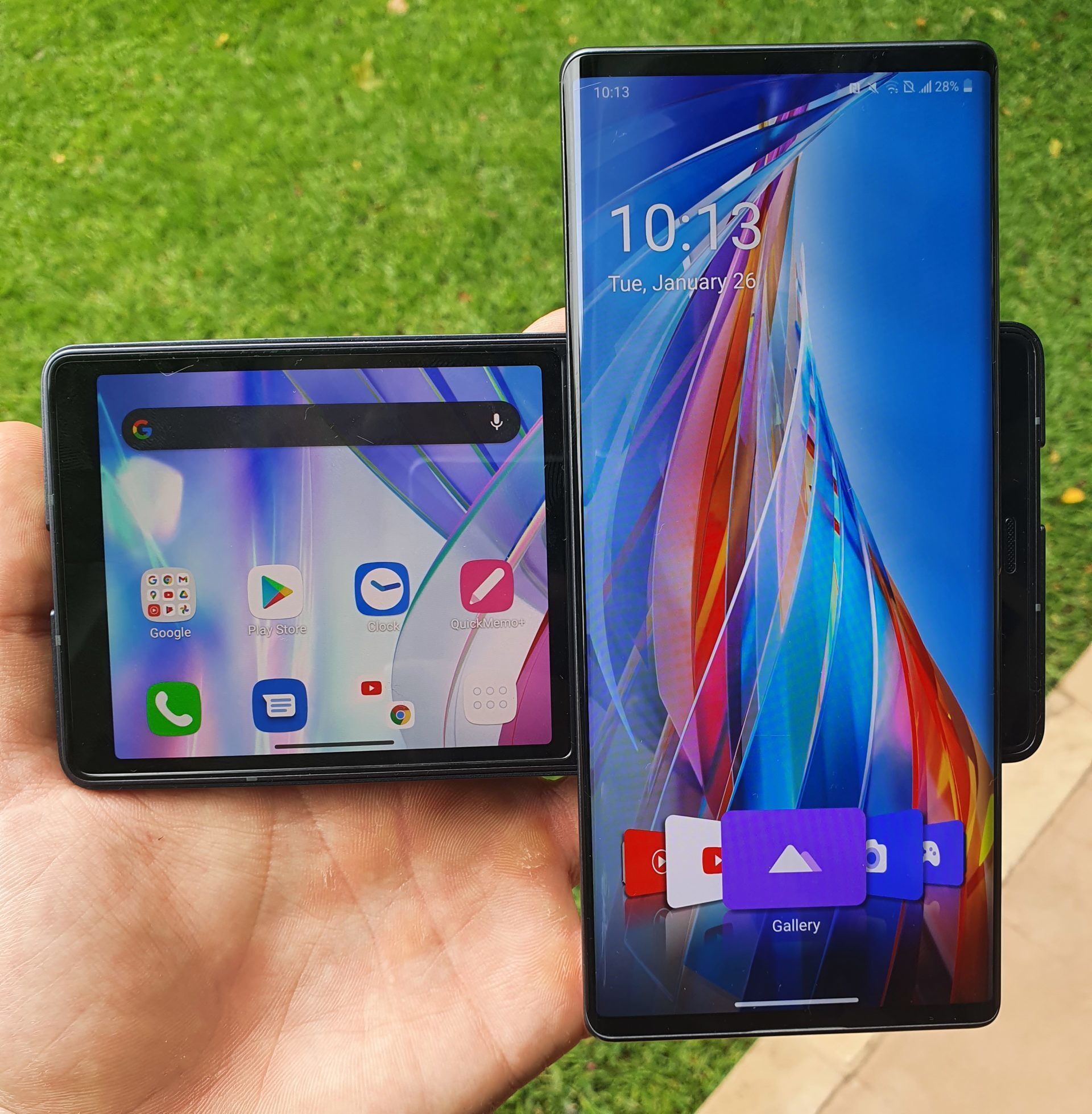
So, what’s the deal with the Wing and its main feature? Switching to the swivel mode creates a main and secondary display, which potentially unlocks a world of multi-tasking possibilities. You can have two separate apps open at the same time, allowing you to binge YouTube and scroll through Twitter or text at the same time. Or read an article and take notes on the smaller screen. Personally, I found it hugely useful to have an exercise routine or recipe open on the larger screen, and a timer open on the smaller one. Additionally, some apps offer dual screen support, like YouTube, which puts the video controls on the auxiliary screen without interrupting the main screen. Asphalt 9 uses the smaller screen as a map while you race on the main screen, which was really fun, and a great example of what could be done with the swivel.
However, cool as the dual screen abilities are, they aren’t convenient enough to be the alternative to switching apps, and in-app dual screen support as seen in Asphalt or YouTube is scarce right now. The swivel feature is still more of a novelty with limited use than a redefining feature for modern smartphones.
The Verdict
The LG Wing is a good phone. It offers a unique feature at an affordable price, but unfortunately, its uses are just too limited right now. It’s more of a convenience and a unique gimmick than an infallible argument as to why you should choose this phone over something in a similar price range with better specs but no wings.
That said, if you’re looking for a cool phone with dual-display features that isn’t going to break the bank, at R20,000, the LG Wing might be for you.

